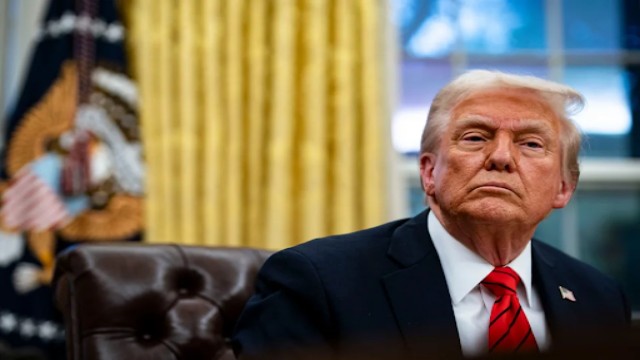
Trump Plans Tariffs to Push Back Against Digital Taxes That Big Tech Opposes
Former President Donald Trump is considering imposing tariffs on countries that tax American tech giants like Alphabet (Google) and Meta (Facebook). He signed a memorandum directing US trade officials to explore retaliatory measures against nations implementing digital services taxes (DSTs) on US firms. This decision could escalate trade tensions between Washington and several European countries.
Why Is Trump Targeting Digital Taxes?
Several countries, including France, the UK, and Canada, have introduced digital taxes aimed at major tech firms that operate in their territories but pay little local tax. Trump sees these taxes as unfair and an attempt to profit off American businesses. According to a White House fact sheet, his administration wants to discourage foreign governments from collecting tax revenue from US tech firms.
“What they’re doing to us in other countries is terrible with digital,” Trump told reporters, hinting at upcoming countermeasures.
Potential US Retaliation
The memorandum instructs the US Trade Representative (USTR) to propose tariffs or other actions against countries with DSTs. The move revisits a dispute from Trump’s first term when the US launched investigations into DSTs in France, Italy, Spain, and India, arguing they unfairly targeted American firms. While some nations have backed off from these taxes in favour of a global minimum tax agreement, those negotiations have repeatedly stalled.
Currently, about 30 countries have either enacted or proposed DSTs, including key US allies like the UK and Canada. Canada’s DST took effect in 2024, fueling the ongoing trade dispute.
Impact on US-Europe Relations
Trump’s push for tariffs comes just before French President Emmanuel Macron’s scheduled visit to Washington. France was one of the first countries to implement a DST and has resisted removing it despite previous agreements with the US. Retaliatory US tariffs could strain relations with France and other European nations, already uneasy over Trump's approach to foreign policy, particularly his efforts to negotiate directly with Russia over Ukraine.
Beyond taxation, Trump and Vice President JD Vance have also criticized European regulations, arguing that they suppress conservative voices on social media. The administration plans to review whether EU or UK policies pressure American tech firms into limiting free speech.
Trump’s Broader Tariff Strategy
Trump has increasingly turned to tariffs as a tool to reshape global trade. Since taking office for a second term, he has:
- Imposed a 10% tax on Chinese imports
- Paused a 25% tariff on goods from Canada and Mexico
- Proposed a 25% levy on US imports of steel and aluminum
- Directed officials to draft new tariffs targeting automobiles, semiconductors, and pharmaceuticals
While these moves are intended to strengthen the US economy and encourage domestic production, they also risk driving up costs for tech companies that rely on global supply chains.
Conclusion
Trump’s new tariff strategy could spark another trade war, especially with European countries. With Silicon Valley executives already concerned about rising costs and supply chain disruptions, his latest move signals a tough stance on digital taxation. Whether this approach benefits American businesses or further complicates US trade relations remains to be seen.















